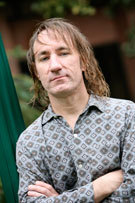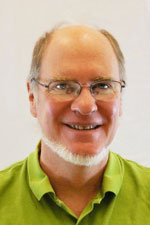

 PSY 8055: Seminar: Cognitive Neuroscience
PSY 8055: Seminar: Cognitive Neuroscience
Chad J. Marsolek, Professor, Department of Psychology
Tuesdays, 12:45 – 2:45 PM
Room: N668 Elliott Hall
Recent advances and general background in the analysis of neural bases of cognitive functions. Graduate students interested in cognitive neuroscience are invited to register for the course, regardless of disciplinary background.
For questions or more information, please contact Dr. Chad J. Marsolek (marso002@umn.edu).
 PSY 5015: Cognition, Computation, and Brain
PSY 5015: Cognition, Computation, and Brain
Chad J. Marsolek, Professor, Department of Psychology
Tuesdays, 9:45 – 11:00 AM
Room: N227 Elliott Hall
Human cognitive abilities (perception, memory, attention) from different perspectives (e.g., cognitive psychological approach, cognitive neuroscience approach). Students interested in cognition are invited to register for the course, regardless of disciplinary background.
For questions or more information, please contact Dr. Chad J. Marsolek (marso002@umn.edu).
 EPSY 8118: Advanced Cognitive Psychology
EPSY 8118: Advanced Cognitive Psychology
Sashank Varma, Associate Professor, Educational Psychology Department
Tuesdays, 1:00 – 3:45 PM, Room TBA
This course is a graduate introduction to cognitive psychology. It is “advanced” in the sense that it focuses on higher-level cognition, and also in its emphasis on theories and models in addition to empirical results. The topics include the cognitive revolution, working memory, executive function and cognitive control, long-term memory, learning and transfer, concepts and categorization, expertise, problem solving, language comprehension, mathematical thinking, logical and visuospatial reasoning, judgment and decision-making, and cognitive architecture. Graduate students interested in cognitive psychology are invited to register for the course, regardless of disciplinary background.
For questions or more information, please contact Dr. Sashank Varma (sashank@umn.edu).
 CPSY 8360: The Neuroscience of Resilience (2-3 credits)
CPSY 8360: The Neuroscience of Resilience (2-3 credits)
Kathleen Thomas, Institute of Child Development
Mondays, 2:00 – 4:30 p.m.
“How is it that some children successfully overcome severe life challenges to grow up competent and well-adjusted?” (Masten, 2014)
This question lies at the heart of developmental science research on resilience and has been the basis for a rich history of research in developmental psychopathology. However, the term resilience has been used to mean different things in different contexts, including neural plasticity, resistance to disease, recovery of function following injury, or basic immune adaptation.
In this doctoral seminar, students will:
For more information, contact Dr. Kathleen Thomas at thoma114@umn.edu.
 Kin 8211: Graduate Seminar in Perception and Action (3 credits)
Kin 8211: Graduate Seminar in Perception and Action (3 credits)
Thomas A. Stoffregen, Professor, School of Kinesiology
Tuesdays, 2:30 - 5:00
In this course, we will consider theoretical and empirical approaches to understanding relations between perception (epistemology, or the getting of information) and the control of behavior (the use of perceptual information for the achievement of behavioral goals). Topics vary each time the course is offered, and can range from broad theoretical and historical issues (e.g., historical understandings of concepts of epistemology and their relation to contemporary concepts of embodiment), to development (infants' perceptual-motor exploration of themselves and their worlds, and the causality of this activity in "cognitive development"), to theory and research on affordances, perceptual-motor embodiment, neural plasticity, and so on. We read primary sources, and students make in-class presentations of research articles.